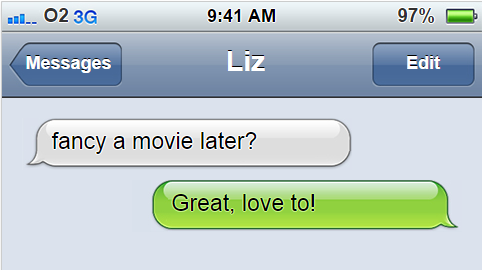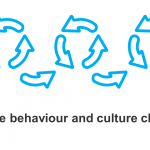How do you plan a trip to the movies with a friend? As someone in my 40s, I’d probably call my friend, with the conversation going something like this:
“The film starts at eight at the Odeon, so I’ll meet you at seven thirty outside Leicester Square tube. If you are held up and you are not there by seven forty five, I’ll go and buy some tickets and meet you in the foyer …”
Now if you are 22, how might the same conversation go to achieve the same outcome i.e. getting to the movie on time?
Firstly, it would almost certainly be text based, and would probably go something like this:
Then ‘later’, but not at any pre-arranged time, the conversation continues:
In this version, there is no pre-prepared plan, no hard times or locations, no prearranged ‘B’ plan or contingency.
Why the difference? It’s simply that when I grew up, you had to make plans for the simplest of tasks otherwise nothing happened.
But if you grew up with a phone in your pocket and an expectation of near real-time person to person messaging, why bother? You can achieve the same outcome working in a real time way.
I can of course do it all by text too (or actually do it all online!), but my existing habits subconsciously steer me to the way I have always done it.
We see this all the time at work.
Generally younger colleagues choose to achieve the same outcomes in a fluid, some would argue just in time, way.
This can often be frustrating and seem like chaos to managers. But if the outcome is right (right time, budget and quality) what is the problem? If the outcome is not right you need the leadership skill and attitude to deal with it, but surely that is just part of good performance management?
Obviously for complex, important projects, you will always need plans and co-ordination – the trick is to know which bits of the plan where simply defining the outcome is good enough and to agree a mix and norms for the preferences within teams you work with.
Communications technology is changing the way we all work, but our preferences and styles vary. With this in mind remember you don’t always need to manage the process, just the outcome!
By Simon Walker. Simon speaks and consults widely on the future of work and leadership, and can be contacted at simon@simonwalker.org










